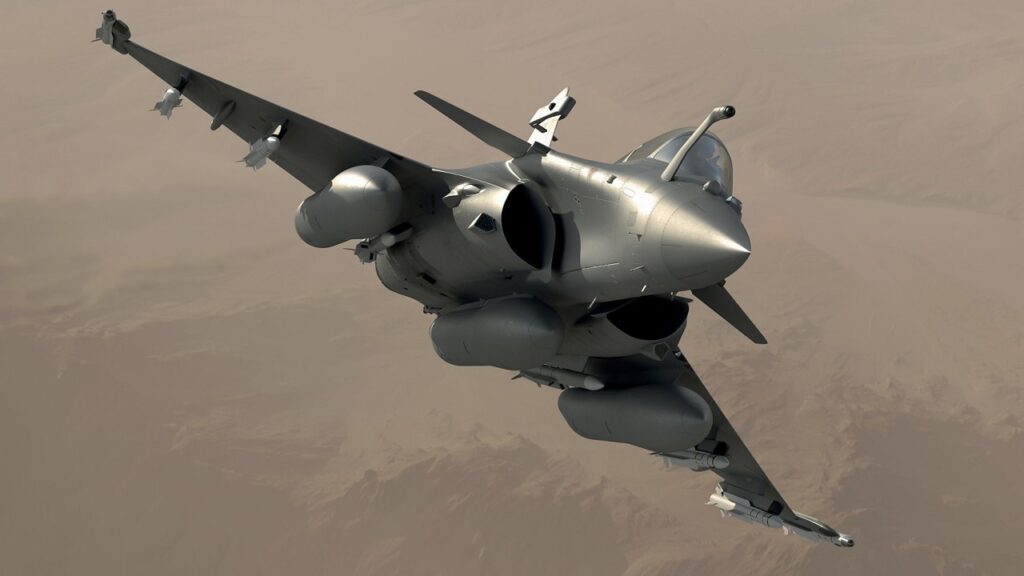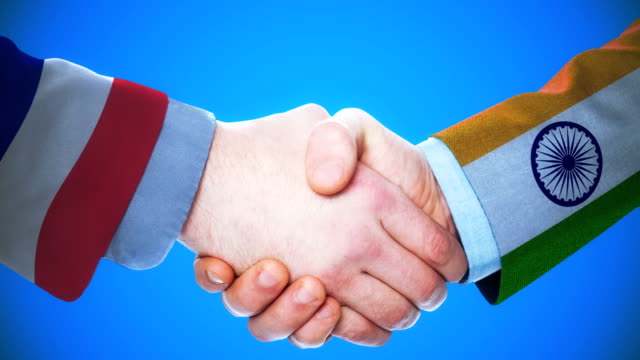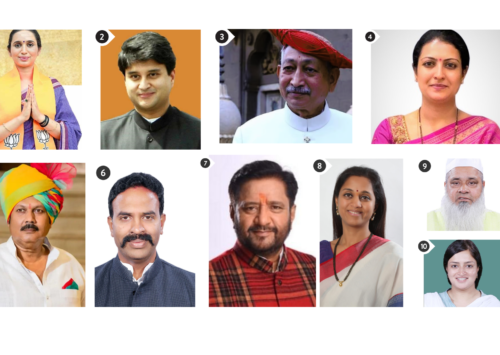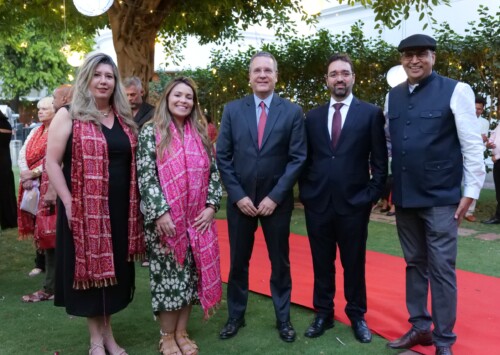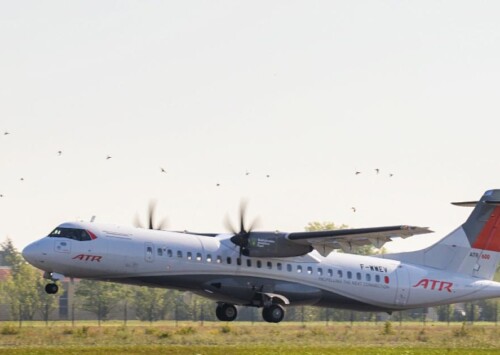Modi’s Bastille Day visit to cement India-France relations
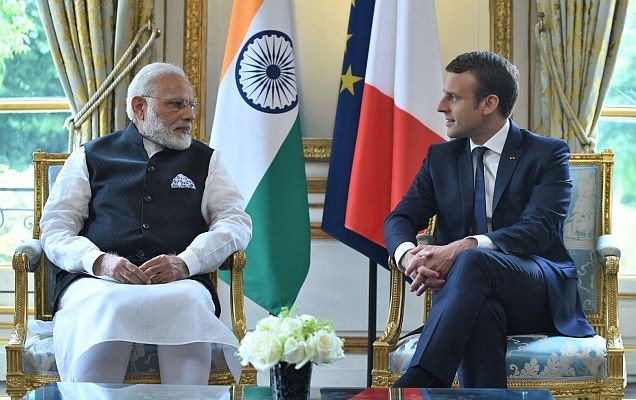
Indian Prime Minister Narendra Modi's upcoming trip to France is another opportunity to deepen the bilateral partnership
Indian Prime Minister Narendra Modi will travel to Paris on July 14 to attend the Bastille Day Parade as the Guest of Honour at the Champs-Elysées. France celebrates this day as National Day marking the fall of the Bastille, a French prison on July 14, 1789, a key celebrative moment that binds the French together, especially the values of “liberty, equality, fraternity”.
Modi’s presence in Paris holds special significance as in 2023 France and India are celebrating 25 years of their strategic partnership. Modi will be the second Indian PM to be the Guest of Honour at Bastille Day after Dr Manmohan Singh in 2009.
In the emerging global order, Modi’s visit is likely to boost Indo-French economic cooperation and is also set to shape broader EU-India strategic ties. Even though New Delhi’s position on the Russia-Ukraine war has led to raised eyebrows in some European countries about limits of strategic convergence between EU and India, there is also a growing realisation in EU about the dynamics of strategic ambiguity and complexities of geo-political, geo-economic and geo-security factors behind India’s stand.
The European concerns notwithstanding, Modi’s visit presents an opportunity for the two nations to move into the next phase in the India-France Strategic Partnership and set new and more ambitious goals for cultural, scientific, academic, economic cooperation and wide range of interests. The visit should ideally deliver an array of common initiatives in order to respond to the challenges the world is facing including climate change, biodiversity loss and the achievement of sustainable development goals.
Significance and substance
India has signed more than 35 strategic partnerships agreement with countries so far. But the first-ever strategic partnership India signed with any country was with France in January 1998. A few months later, India conducted the Pokhran II nuclear tests. France not only refrained from imposing sanctions, unlike US and other Western countries, but it also sought to help end India’s exclusion from the global nuclear framework.
Over the past 25 years, with numerous bilateral meetings, a strong institutional mechanism has been established to strengthen co-operation in the areas of space, defence, civil nuclear, renewables, cyberspace, digital technology, counter terrorism, and the blue economy. These initiatives not only cover the two countries, but some are also multilateral. For instance, at the Paris Climate Change Summit in 2015, the two countries jointly launched the International Solar Alliance to promote solar energy in 121 tropical countries all over the world.
It is possible that during the upcoming visit, a new deal to acquire 26 Rafale Marine fighters for indigenously built aircraft carrier INS Vikrant could be announced. India has already purchased 36 Rafale fighter jets for the Indian Air Force. Not just in defence, France is also set to play an important role in the growth of India’s civil aviation industry. For instance, just last month Tata Group’s Air India and India’s largest airline IndiGo announced purchase agreements to acquire 250 and 500 aircrafts respectively from Airbus during the Paris Air show. This deal marks a landmark milestone in India-France ties.
Modi’s visit is taking place at a time when French President Emmanuel Macron is facing internal and external challenges. Although the Constitutional Council of France, the French Supreme Court, has allowed him to go ahead with his pension reforms, it has come with a huge cost for him and his country. The fact that Macron could not succeed negotiating the reform with different stakeholders in the Parliament and had to use the ‘guillotine route’ by avoiding a vote in the Parliament on the reforms is a dangerous development for democracy and it exposes the collapse of credible collective consultative mechanism in the country.
However, unlike Modi, who faces the parliamentary election next year, Macron has no baggage as French constitution prevents a President from running for a third consecutive mandate.
For last one week, France has been convulsing under unprecedented riots. Violent unrest that swept France after the deadly police shooting of a teenager appeared to be calming and it is hoped that when Modi visits Paris, things would become normal. As economic and social cost of violence mount, France is furious with the poisonously divided politics in the country and its liberal democracy.
The way the radical violent elements indulged in looting and burning shows the anarchic rejection of the government. Coming days will see how the country emerges from the dangerous deep-rooted dynamic of disorder and addresses the absence of societal cohesion. Also, as such criminal elements are present in many parts of Europe, it is not a surprise that many EU countries are set to revisit their refugee policy.
When we think of India’s most trusted ally and partner on the international scene, Russia used to come to our mind first, but not anymore. Over time, France has emerged, as India’s new Russia and the strongest advocate of a global role for India. Paris, the land of fashion, promises and possibilities is now reshaping the global geopolitical order and Macron wants India to be the part of this change.
Even while Macron has been facing domestic opposition, he has been trying to project himself as a European voice externally. Of late, he has been criticised by European and American leaders for his softer approach both towards Russia and China as well as his recent remarks on the status of Taiwan. Time and again he has spoken for European strategic autonomy, independent from American foreign and security policy.
History shows that France has all along pursued its national interests by making it too painful for the world to ignore. While other nations have treated Atlantic relations as a common enterprise, Macron like all French leaders, flaunting independence, has conducted it as a zero-sum game in which France reserves the right to have the upper hand. Therefore, Modi will need to take these internal dynamics and Macron’s global ambition into consideration when he meets Macron in Champs-Elysées.
France is a nation of the Indo-Pacific and Modi’s visit will help strengthen the two countries further collaborating in the Indo-Pacific where France has overseas territories and an exclusive economic zone. Within this context, strengthened collaboration with India, could boost Macron’s standing in EU and France could also reassure other EU nations that despite few differences, partnership with India remains crucial. After Brexit, France is the only nuclear weapon State and permanent member of the UN Security Council within the European Union.
Spirit of cooperation
India and France share a vision of a free, open, and rules-based order, based on commitment to international law, respect for sovereignty and territorial integrity, freedom of navigation and a region free from coercion, tensions, and conflicts. As seen in the timely delivery of the Rafale despite the pandemic, the two sides enjoy synergy in the field of defence in particular.
France also hosts the fourth-largest Indian community in Europe after the UK, Italy, and Germany. Despite the challenging environment, France is making a concerted effort to attract students and professionals from India. A bilateral agreement on migration and mobility co-operation is already in place which aims to facilitate circular migration based on mobility and return of skills to the home country. It targets to enrol 20,000 Indian students by 2025.
India’s USD 3.75 trillion economy and ever-increasing market size makes the country one of the fastest growing and attractive economies in the world. Modi’s visit to France will leverage India as an active strategic partner on many dimensions, gathering investors, focusing on clean energy, and global peace. All in all, this visit will strengthen the spirit of cooperation with India’s European partners, simultaneously moulding India’s image as a reliable and confidant collaborative partner.
It would be pertinent to note that the India-France strategic partnership is significant from European perspective as well. The great impending prize for India-France partnership would be an early conclusion to the EU-India Free Trade Agreement negotiation and France is well placed to play an important role. The agreement will connect India with EU’s USD 18 trillion economic and technological powerhouse that is trying to find a new voice in the world and keen to reduce dependence on China, but unable to do so due to conflicting interests from within and from outside.
Trade and business
India and France have had trade relations since the 17th century. The diplomatic relations go back to the time when India became the newly independent country in 1947. Bilateral trade between India and France stands at EUR 10.7 billion, with over 1,000 French companies in India amassing a turnover of USD 20 billion and 210 Indian companies in France with an investment stock of EUR 1 billion.
France is the 11th largest foreign investor in India with a cumulative FDI stock of USD 10,389 million from April 2000 to September 2022, which represents 1.6 pc of the total FDI inflows into India and there are more than 150 Indian companies operating in France including subsidiaries, employing more than 7,000 persons.
Modi is aware that when President Macron visited China in April, he was lavishly treated by the Chinese President. President Xi’s objective was to woo Macron to counter US. With former German Chancellor Angela Merkel no longer in power, President Xi sees Macron as someone who can exert influence on the EU towards a more moderate position on China than the US. This underlines the importance Beijing attaches to its relationship with France. For India’s strategic geo-political and economic interest, it is therefore extremely important for Modi to see that the France-China relationship must not become the Great China Wall blocking Indian interests.
Ascending dynamics
Since his election in May 2017, Macron’s undisclosed leitmotiv has been to create a space for a strong international role for France, and Macron knows that Modi is one leader who could help him – both are strong believer in multilateralism and on internationalism and share challenges of the new world order. The French President’s ambitions to make France India’s gateway to Europe, remains the core objectives of Macron’s policy.
With all major European countries, Germany, France, Italy, and the UK weakened by varying degrees of internal and external forces, Modi’s visit will help France position itself as one of the most credible and attractive partners on the word stage. Modi was also invited by French President Emmanuel Macron to the G-7 summit in 2019.
Macron is aware that India’s relations with EU is constrained because of EU’s structural complexities, its complicated priorities, and misconceptions. Both leaders also realise that while cooperation between India and EU can only be on an upward trajectory, India remains sceptical that any EU member state, despite the hype on relations with India, has the will or means to rise above national interest. Macron could be useful for conveying to EU that if it wants to be treated as a bloc, and as a responsible strategic partner, it will have to do a better job in convincing its members that EU’s long-term interest lies in enhancing meaningful relations with India.
In recent years the relationship between Paris and New Delhi has grown closer still. France openly supports India’s desire for a permanent seat on the UN Security Council and has used its position to support New Delhi’s actions in Jammu and Kashmir, notably blocking a critical Chinese motion in the UN on the abrogation of Article 370.
One of the significant features of India’s foreign policy under the Modi government has been its flexibility to accept ground realities and its readiness to embrace change, and this visit of Modi which comes within a month of his historic visit to US, offers Modi an opportunity to tell Europe that in spite of divergent views on some global issues, India values its relationship with Europe, and it believes in shared future and common values.
India-France relationship is a defining strategic partnership and an evolving one, which offers an opportune moment for Modi and Macron to revitalise multilateralism. As this relationship is broad based and not unidimensional, India-France relation has a lot of substance, and the future will decide how both countries take their common interests forward. It is indeed a defining and evolving strategic partnership for both, and an opportunity to open new chapter in India – France relations.
Sunil Prasad, is the Secretary General of Brussels based Europe India Chamber of Commerce and the views expressed here are his personal views.

